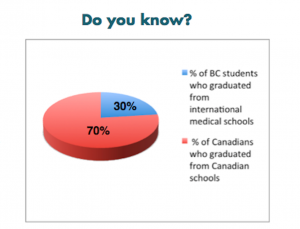What is a medical resident? After medical school, graduates have to work in training positions called medical residencies before they can become fully licensed. They are hired by the provincial Ministries of Health to work as resident physicians, ie, apprentice physicians. Resident physicians are an important cog in the medical wheel. They are not the […]
FAQ: Medical Resident
Comments Off on FAQ: Medical ResidentWhat is a medical resident?
After medical school, graduates have to work in training positions called medical residencies before they can become fully licensed. They are hired by the provincial Ministries of Health to work as resident physicians, ie, apprentice physicians. Resident physicians are an important cog in the medical wheel. They are not the most trained or knowledgeable, but they work the most. They work as much as 80 hours per week. They examine patients, take medical histories, reach diagnoses and prescribe treatment, under the supervision of medical staff. The supervisor is not present during the majority of the time they are in direct contact with patients. They write orders for treatment and prescribe drugs. They face life or death situations. Resident physicians take on more and more complex work and responsibility as they gain experience. As they approach the end of their residency, there is little to distinguish what they do from what their designated supervisors do.
